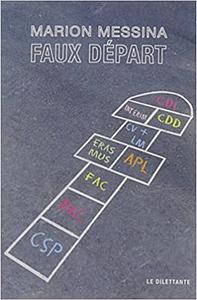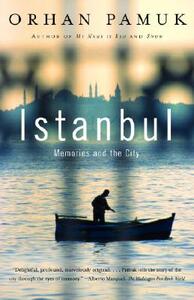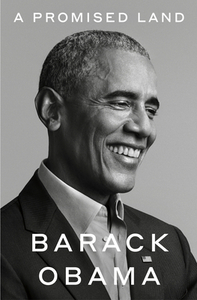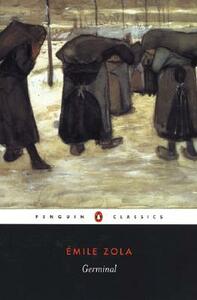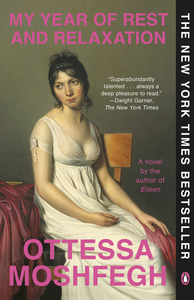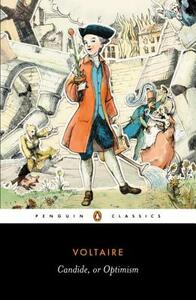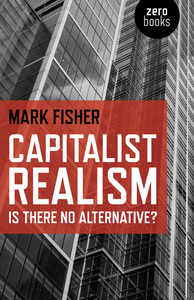Take a photo of a barcode or cover
pascalthehoff's Reviews (404)
adventurous
dark
sad
medium-paced
Plot or Character Driven:
Character
Strong character development:
No
Loveable characters:
Yes
Diverse cast of characters:
Yes
Flaws of characters a main focus:
Complicated
(Deutsche Rezension unten / Revue allemande ci-dessous)
Roman éducatif sur des millennials menacés par la pauvreté, but make it French. En principe, Faux départ est une histoire de coming-of-age moderne plutôt ordinaire. Mais le roman brille par deux choses : sa représentation sans retenue de la vie précaire malgré l'emploi et Paris en tant que lieu de ce travail d'esclave moderne.
L'histoire de la protagoniste est un symbole de la vie précaire de nombreuses personnes d'une vingtaine d'années, lorsque les fantasmes parentaux se heurtent pour la première fois à la réalité actuelle. Car le travail et le mérite ne fonctionnent plus aussi bien aujourd'hui que dans les années 1970 en Europe.
La protagoniste vit à Paris pendant plus d'un an sans jamais avoir la possibilité de louer un logement décent, que ce soit financièrement ou par rapport à son statut social de jeune travailleur non qualifié.
Le monde du travail moderne dans le roman est impersonnel, exploitant et désenchanté. En contraste avec les personnages plus âgés qui apparaissent au cours de l'histoire, la protagoniste n'a aucun espoir d'une vie professionnelle épanouissante. Pourquoi être enchaîné à un bureau tous les jours alors que le chômage est peut-être une option plus attrayante ?
Tout cela est bien illustré dans le roman. Et puis, il y a une critique intelligente de l'État français et du mode de vie occidental en général. La relation amoureuse toxique, qui prend régulièrement beaucoup de place, est plutôt un objet étranger. Mais en soi, elle souligne aussi le quotidien désastreux de la protagoniste.
—
Bildungsroman über armutsbedrohte Millennials, but make it French. Im Grundsatz ist Faux départ eine eher gewöhnliche moderne Coming-of-Age-Geschichte. Der Roman brilliert aber durch zwei Dinge: Seine hemmunglose Darstellung prekären Lebens trotz Beschäftigung sowie Paris als Setting dieser modernen Sklavenarbeit.
Die Geschichte der Protagonistin steht symbolisch für das prekäre Leben vieler Menschen um die 20 Jahre, wenn die elterlichen Vorbildsfantasien zum ersten Mal auf die aktuelle Realität treffen. Denn Fleiß und Verdienst funktionieren heute lange nicht mehr so gut wie noch in den europäischen 1970ern.
Die Protagonistin lebt für mehr als ein Jahr in Paris, ohne je auch nur die Möglichkeit zu haben, sich eine menschenwürdige eigene Behausung zu mieten – sowohl finanziell, als auch in Bezug auf ihren sozialen Status als junge ungelernte Arbeitskraft.
Die moderne Arbeitswelt im Roman ist unpersönlich, ausbeuterisch und desillusionierend. Im Kontrast zu älteren Charakteren, die im Laufe der Geschichte auftreten, fehlt der Protagonistin jegliche Hoffnung auf ein erfüllendes Arbeitsleben. Wieso jeden Tag an einen Schreibtisch gefesselt sein, wenn Arbeitslosigkeit vielleicht doch die attraktivere Option ist?
All das veranschaulicht der Roman großartig. Zwischendrin noch ein wenig schlaue Kritik am französischen Staat und dem westlichen Lebensstil im Allgmeinen. Die toxische Liebesbeziehung, die immer wieder viel Raum einnimmt, ist da eher ein Fremdkörper. Für sich genommen unterstreicht jedoch auch diese den desolaten Alltag der Protagonistin.
Roman éducatif sur des millennials menacés par la pauvreté, but make it French. En principe, Faux départ est une histoire de coming-of-age moderne plutôt ordinaire. Mais le roman brille par deux choses : sa représentation sans retenue de la vie précaire malgré l'emploi et Paris en tant que lieu de ce travail d'esclave moderne.
L'histoire de la protagoniste est un symbole de la vie précaire de nombreuses personnes d'une vingtaine d'années, lorsque les fantasmes parentaux se heurtent pour la première fois à la réalité actuelle. Car le travail et le mérite ne fonctionnent plus aussi bien aujourd'hui que dans les années 1970 en Europe.
La protagoniste vit à Paris pendant plus d'un an sans jamais avoir la possibilité de louer un logement décent, que ce soit financièrement ou par rapport à son statut social de jeune travailleur non qualifié.
Le monde du travail moderne dans le roman est impersonnel, exploitant et désenchanté. En contraste avec les personnages plus âgés qui apparaissent au cours de l'histoire, la protagoniste n'a aucun espoir d'une vie professionnelle épanouissante. Pourquoi être enchaîné à un bureau tous les jours alors que le chômage est peut-être une option plus attrayante ?
Tout cela est bien illustré dans le roman. Et puis, il y a une critique intelligente de l'État français et du mode de vie occidental en général. La relation amoureuse toxique, qui prend régulièrement beaucoup de place, est plutôt un objet étranger. Mais en soi, elle souligne aussi le quotidien désastreux de la protagoniste.
—
Bildungsroman über armutsbedrohte Millennials, but make it French. Im Grundsatz ist Faux départ eine eher gewöhnliche moderne Coming-of-Age-Geschichte. Der Roman brilliert aber durch zwei Dinge: Seine hemmunglose Darstellung prekären Lebens trotz Beschäftigung sowie Paris als Setting dieser modernen Sklavenarbeit.
Die Geschichte der Protagonistin steht symbolisch für das prekäre Leben vieler Menschen um die 20 Jahre, wenn die elterlichen Vorbildsfantasien zum ersten Mal auf die aktuelle Realität treffen. Denn Fleiß und Verdienst funktionieren heute lange nicht mehr so gut wie noch in den europäischen 1970ern.
Die Protagonistin lebt für mehr als ein Jahr in Paris, ohne je auch nur die Möglichkeit zu haben, sich eine menschenwürdige eigene Behausung zu mieten – sowohl finanziell, als auch in Bezug auf ihren sozialen Status als junge ungelernte Arbeitskraft.
Die moderne Arbeitswelt im Roman ist unpersönlich, ausbeuterisch und desillusionierend. Im Kontrast zu älteren Charakteren, die im Laufe der Geschichte auftreten, fehlt der Protagonistin jegliche Hoffnung auf ein erfüllendes Arbeitsleben. Wieso jeden Tag an einen Schreibtisch gefesselt sein, wenn Arbeitslosigkeit vielleicht doch die attraktivere Option ist?
All das veranschaulicht der Roman großartig. Zwischendrin noch ein wenig schlaue Kritik am französischen Staat und dem westlichen Lebensstil im Allgmeinen. Die toxische Liebesbeziehung, die immer wieder viel Raum einnimmt, ist da eher ein Fremdkörper. Für sich genommen unterstreicht jedoch auch diese den desolaten Alltag der Protagonistin.
informative
reflective
relaxing
slow-paced
The problem here is clearly me, because I started reading this without checking the description. I've heard about this book that it's one of the best about what life in Istanbul feels like.
Little did I know that about 50% of the book is completely autobiographical, with little or no connection to the city of Istanbul and its culture. That in itself wouldn't be too much of a drawback. However, the kind of anecdotes the author indulges in are often so generic that they're only really interesting if you want to learn specifically about the life of Orhan Pamuk. (Which, I suppose, is valid; he is, after all, a great author and a Nobel laureate).
In the moments when he writes about the city in a more overt way, Pamuk has more of an aesthetic approach. I really like this, because living in a city is often more about how it feels to be there than about cold facts. However, this approach takes up a lot of space to say very little, which further diminishes what you actually take away from it.
Long story short, there are probably better sources for learning about Istanbul. I don't blame the book for that, though.
informative
medium-paced
More than anything else about Obama, this book hammers home how fundamentally broken the US two-party system is.
Governing the US is not so much a process of governing as it is a process of struggling to find loopholes in a system between two dogmatically hardened fronts. And this is true of even the most well-meaning candidates.
But has Barack Obama been a good, well-meaning US president? I think so, yes. If only for the fact that he passed the low bar of actually caring about his country and all the people in it.
That sense of genuine good intentions comes across very well in this book. And I don't think even a man as rhetorically gifted as Barack Obama could credibly fake that for more than 700 pages.
In fact, he surprised me with very thorough and self-critical explanations of typical "Obama could have done more / could have done things differently" issues. Never in an apologetic way, but openly stating where and why he fell short. Through his own fault or not.
Still, it is important to read this book with a critical eye - just like any autobiography. Obama is not immune to getting caught up in certain US propaganda values of freedom, world policing, certain aspects of market liberalism, etc.
What's interesting, however, is the nuance and clarity that can be gained from this book on certain issues. For example, Obama seemed genuinely interested in de-escalating the war on terror, but also quickly came to grips with the complex mechanisms that kept him from simply abandoning it altogether, while at the same time acknowledging a certain validity of US involvement in that conflict.
Or there is one of his prouder early moments on the global stage: He essentially strong-armed the BRICS into a disadvantageous climate deal behind closed doors. An impromptu pressure tactic that paved the way for any global climate agreement to pass at all. Obama basically acted as a (biased) mediator between the dominant expectations of the Global North and the valid, but ultimately muted, expectations of the Global South.
So there is a lot of black and white, with Obama sometimes being more proud of the black side than he perhaps should be. But you can also see why even somewhat tainted successes are such a hard-won victory in our rigid systems, both nationally and globally.
Last but not least, one must never forget what Obama meant as a symbol: The first Black President of the United States, and a younger candidate who at least tried to challenge the highly conservative status quo. The ecstasy of this cultural event in itself comes across in the book, even if there may be better works on this specific aspect and its aftermath.
dark
emotional
tense
medium-paced
Plot or Character Driven:
Plot
Strong character development:
Yes
Loveable characters:
Yes
Diverse cast of characters:
Yes
Flaws of characters a main focus:
No
Germinal is a novel about working-class culture in a mining town; about people living at the mercy of the wealthy bourgeoisie, who never reach out to help even in the direst of circumstances; and about the excuses that are used to justify why the working class deserves to suffer as it does.
The narrative of the actual class struggle at the heart of the novel, with strikes and violence, but also famine and betrayal, isn't even the main highlight.
Instead, Germinal stands out for its very detailed human portrayal of the people who suffer and toil in this kind of culture. It vividly shows the toll that the dangerous daily work in a mine takes on the workers' health, and why simply working harder isn't an answer to a better life.
Their wages are squeezed through loopholes and rhetoric that blames the working class, leading to complex infighting. Such differences among the workers themselves, the hidden hierarchies within a company's workforce that deflect anger away from the real culprits, are also abundantly clear in the story.
What impressed me more than anything, though, was how quickly I became invested in the fates of the many characters. The main family of 10 alone is more than most other novels could carry with such relative ease. Reading Germinal is like breathing the coal-dust-laden air of a 19th-century French mining town through the ink. And that is its greatest achievement, impossible to describe in a short review.
dark
funny
reflective
relaxing
medium-paced
Plot or Character Driven:
Character
Strong character development:
Complicated
Loveable characters:
Complicated
Diverse cast of characters:
No
Flaws of characters a main focus:
Yes
On the surface, My Year of Rest and Relaxation satisfies a self-destructive streak in the reader without actually destroying oneself. Beneath the surface, it criticizes the hedonistic, senseless life of modern capitalist society. It does this by cranking the depravity all the way up to eleven. Falling asleep on the sofa with a cocktail of alcohol and pills, while porn blares from the TV speakers, just to numb all feelings.
Actually, in its moodiness and disinterest, the novel doesn't criticize modern life so much as it is deeply disappointed in it. The protagonist gives life the cold shoulder to an extent that comes as close to suicide as one can get without actually committing the act. The fact that she is as privileged as you can get (educated, beautiful, with a reliable passive income) is not a knock against her, but it is exactly the point. It only serves to show that even with all that privilege, modern life can absolutely suck, which makes for an even stronger impression.
Tonally, the author either wrote this in a drunken stupor or really nailed this unhinged state of mind 100% of the time. Yes, the protagonist talks to her "best friend" Reva in a rather heartless way. But she is also absolutely ruthless to her trash bag ex-boyfriend, for example. (At least when he is not busy abusing her himself, which is sufficiently painful to read in its effective bluntness). The reader, too, is the target of the protagonist's uncompromising straightforwardness - which is often quite funny, frankly, if you don't take everything at face value.
This is a novel that feels and flows as if the first-person narrator says what's on her mind 100% of the time, without ever second-guessing. At the same time, you can tell that the author must have carefully crafted that level of cutting carelessness with laser focus.
Is the tone a little too edgy at times? Maybe. But overshooting from time to time is part of the deal when you are that committed to this kind of style.
Actually, in its moodiness and disinterest, the novel doesn't criticize modern life so much as it is deeply disappointed in it. The protagonist gives life the cold shoulder to an extent that comes as close to suicide as one can get without actually committing the act. The fact that she is as privileged as you can get (educated, beautiful, with a reliable passive income) is not a knock against her, but it is exactly the point. It only serves to show that even with all that privilege, modern life can absolutely suck, which makes for an even stronger impression.
Tonally, the author either wrote this in a drunken stupor or really nailed this unhinged state of mind 100% of the time. Yes, the protagonist talks to her "best friend" Reva in a rather heartless way. But she is also absolutely ruthless to her trash bag ex-boyfriend, for example. (At least when he is not busy abusing her himself, which is sufficiently painful to read in its effective bluntness). The reader, too, is the target of the protagonist's uncompromising straightforwardness - which is often quite funny, frankly, if you don't take everything at face value.
This is a novel that feels and flows as if the first-person narrator says what's on her mind 100% of the time, without ever second-guessing. At the same time, you can tell that the author must have carefully crafted that level of cutting carelessness with laser focus.
Is the tone a little too edgy at times? Maybe. But overshooting from time to time is part of the deal when you are that committed to this kind of style.
mysterious
slow-paced
Plot or Character Driven:
Character
Strong character development:
No
Loveable characters:
No
Diverse cast of characters:
No
Flaws of characters a main focus:
Yes
Monde vor der Landung erinnert an Patrick Süskinds Parfüm. Sprachlich hat es einen ähnlichen historischen Flair – nicht nur in der Wortwahl, sondern auch in seiner Präzision und Bildlichkeit. Eine weitere Ähnlichkeit ist der Blicks in den Kopf eines Abweichlers. In diesem Fall ein Verschwörungsideologe oder Pseudowissenschaftler, statt einem Mörder. Eine deutlich interessantere, unmittelbar relevantere Perspektive, gerade in der heutigen Zeit.
Obwohl Monde vor der Landung seinen Protagonisten durchweg als Sympathieträger zeichnet, steht der Roman aber nicht vorrangig für Empathie und Verständnis gegenüber solch von der gesellschaftlichen Norm abweichenden Menschen. Oder gar dafür, den Wert uneingeschränkter freier Meinungsäußerung oder der Heldenhaftigkeit freidenkender Heldenfiguren aufzuzeigen.
Die Geschichte zeigt eindrucksvoll, wie ein solch ideologisch verrannter Geist entsteht und wie sein Streben ihn färbt. Der Roman betrachtet alles Erzählte konsequent durch die Linse des alternativen Weltbilds. Permanent streut der Text beiläufige verquere Feststellungen über die Umwelt des Protagonisten ein, die seine Theorie der Hohlerde unterstützen. Er kann kaum eine Pflanze anschauen, ohne daran zu denken, auf welch faszinierende Weise sie im Verhältnis zum großen Ganzen steht.
Denn da im Kopf des Protagonisten alles um einen ideologischen Hammer kreist, scheint seine ganze Welt voller Nägel. Und jedes Gegenargument ist nur eine Herausforderung, es zu entkräften – was mit entsprechender pseudowissenschaftlicher Ansichtsweise stets möglich ist.
Monde vor der Landung zeigt aber auch, wie solche Versessenheit die Menschen um den Protagonisten, allen voran seine Frau, in Mitleidenschaft zieht. Die Gräuel des Nationalsozialismus nimmt der Protagonist punktuell wahr. Schnell werden sie aber wieder von den wirren pseudowissenschaftlichen Ideen verdrängt – und das, obwohl seine jüdische Ehefrau unmittelbar von den Repressailien betroffen ist (und nebenbei für das Gros des Lebensunterhalts der Familie sorgt). Die Verschwörungsideologie regiert das gesamte Leben des Protagonisten und indirekt auch das der Familie.
Ultimativ ist dieses lebenslange Streben dennoch sinnlos, da wir wissen: Jede Pseudowissenschaft wird am Ende entkräftet, wenn sie denn überhaupt größeren Anklang findet.
Betrachtet man Monde vor der Landung auf der Empathie-Ebene, ist der Roman also eher eine Geschichte des Mitleids als des Mitverständnis.
funny
lighthearted
slow-paced
Plot or Character Driven:
Character
Strong character development:
No
Loveable characters:
No
Diverse cast of characters:
No
Flaws of characters a main focus:
Yes
Nana has a stage-like quality to it. Almost every chapter at one point leads to a room full of people, quickly waving the perspective focus from one character to the next.
A success on the aesthetical level. But the jumbling of so many homogenous male admirers, which are all introduced at a rapid pace in the beginning, convolutes the entire novel.
Moreover, the major chunk of the novel – between the iconic opening and ending – can best be described as much ado about nothing, for better or (too often) for worse.
This approach effectively portrays the exhausting and chaotic tug-of-war between the men who all want Nana for themselves. However, this rather generic squabbling between the men and Nana doesn't do enough to distinguish itself from other stories in which a femme fetale juggles a bunch of rich men.
Some of the men receive a modest amount of compassion. At different points in their individual downfalls they are painted as tragic figures in their own right – if only with a few small brush strokes. This compassion for the rich may be surprising for a very class-conscious and often class-critical author like Zola, but it definitely fits the bigger picture in its nuanced execution.
Nana herself, as a potentially unforgettable protagonist, mostly shines in the opening and end chapters, with too little spice in most other chapters. She is best when her reckless abandon is most blatantly displayed, which is only too seldom the case.
A success on the aesthetical level. But the jumbling of so many homogenous male admirers, which are all introduced at a rapid pace in the beginning, convolutes the entire novel.
Moreover, the major chunk of the novel – between the iconic opening and ending – can best be described as much ado about nothing, for better or (too often) for worse.
This approach effectively portrays the exhausting and chaotic tug-of-war between the men who all want Nana for themselves. However, this rather generic squabbling between the men and Nana doesn't do enough to distinguish itself from other stories in which a femme fetale juggles a bunch of rich men.
Some of the men receive a modest amount of compassion. At different points in their individual downfalls they are painted as tragic figures in their own right – if only with a few small brush strokes. This compassion for the rich may be surprising for a very class-conscious and often class-critical author like Zola, but it definitely fits the bigger picture in its nuanced execution.
Nana herself, as a potentially unforgettable protagonist, mostly shines in the opening and end chapters, with too little spice in most other chapters. She is best when her reckless abandon is most blatantly displayed, which is only too seldom the case.
informative
medium-paced
Die ernstzunehmenden Medien und Meinungsbildenden vertraten 2022 beim Thema Sanktionen gegen Russland eine sehr homogene Meinung (was nicht gleichbedeutend ist mit Staatslenkung oder Zensur). Die restlichen Stimmen legten es darauf an, zu polarisieren, statt einen förderlichen Diskurs anzuregen. Das machte es schwer, im normalen Alltag einen umfassenden, reflektierten Überblick über den sehr facettenreichen Themenkomplex Russlandsanktionen zu bekommen.
Bestimmte politische Akteur*innen überraschten mich in dieser Aufarbeitung der Geschehnisse mit ihren Aussagen und Ideen. Nicht zuletzt, weil der staatliche Umgang mit der Krise 2022 doch oft eher hemdsärmelig schien. Manche Akteure wiederum waren exakt so borniert wie erwartet (allem voran natürlich Hemmschuh Nr. 1 Christian Lindner).
Doch auch die Klimabewegung bekommt hier Kritik, da ihr Aktivismus im Kontext der Russlandsanktionen und Energiekrise häufig die falschen Gegner mit erschreckend konservativen Ansätzen beackerte. Kein Wunder, dass das die Gesellschaft spaltet – vor allem, wenn der Autor naheliegende, plausible, zielführende Alternativansätze vorschlägt, die nicht die ärmsten Bevölkerungsgruppen buchstäblich kalt lassen.
Vor allem wird beim Lesen aber deutlich, dass gewisse Kollateralschäden beim Ansatz, den Europa gewählt hat – gerade bei der gegebenen Ausgangslage – unvermeidbar waren. Aber auch, dass hier viel Ideologie im Spiel war – sowohl außenpolitisch, als auch wirtschaftswissenschaftlich.
Spannend ist also nicht nur, welche Aspekte des Sanktionierungsansatzes quasi mit Ankündigung ins Chaos führten, sondern auch, wie wir aus vermeidbaren wie unvermeidbaren Problemen gleichermaßen wieder herauskommen.
adventurous
funny
mysterious
medium-paced
Plot or Character Driven:
Plot
Strong character development:
Yes
Loveable characters:
No
Diverse cast of characters:
No
Flaws of characters a main focus:
Yes
With works this old, you always expect a certain quaintness and unwieldiness. Imagine my surprise when I realized that Voltaire was actually a very funny writer, with this one. The vignettes in this fable-like tale are often absurd, favoring elements of surprise over strict narrative coherence.
Between its major philosophical turning points, Candide feels too long-winded for what is actually a fairly straightforward discussion of Leibnizian optimism. But that doesn't make this very lively way of discussing the subject any less interesting from a historical point of view.
Between its major philosophical turning points, Candide feels too long-winded for what is actually a fairly straightforward discussion of Leibnizian optimism. But that doesn't make this very lively way of discussing the subject any less interesting from a historical point of view.
challenging
informative
inspiring
medium-paced
I always thought this book would be more of an entry point into anti-capitalist thinking. So for a long time I thought it would give me mostly superfluous knowledge, more suitable for people coming to the subject for the first time. But the opposite is true.
In particular, it's much more focused on specific aspects of capitalist critique. For example, the way late capitalism shapes our culture and media consumption - and the way this landscape actively prevents us from moving towards a more effective, egalitarian system.
Definitely a highly recommended book from the modern mainstream canon of anti-capitalist works, though not necessarily the beacon it is often hailed as. Also, its rather academic approach actually makes the issues more difficult to grasp than other works could probably manage. This gives it a certain advantage in depth and precision, but I don't think it makes up for the loss in accessibility for a work as broadly relevant as this.
